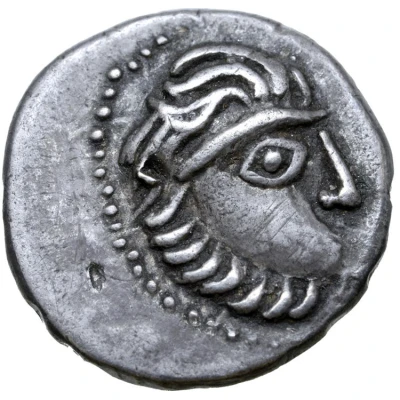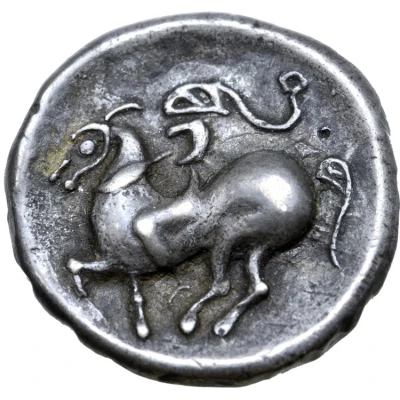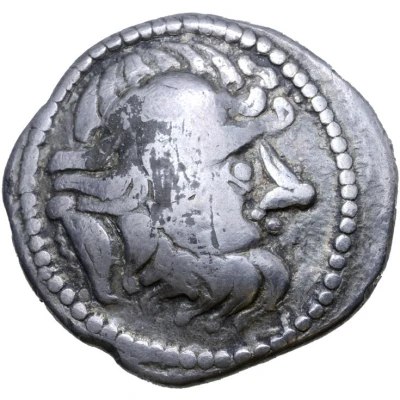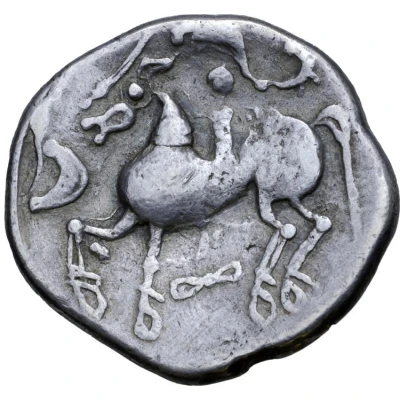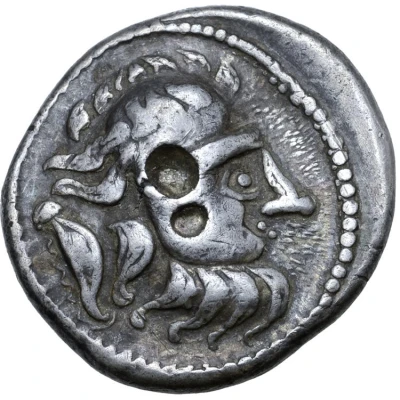
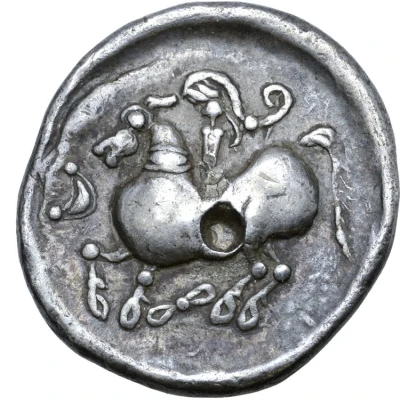

© Roma Numismatics Limited
Tetradrachm Kapostal Type 200 BC - 1 BC
| Silver | 13.66 g | 26 mm |
| Issuer | Hercuniates (Central and Eastern European Celts) |
|---|---|
| Type | Standard circulation coin |
| Years | 200 BC - 1 BC |
| Value | Tetradrachm (4) |
| Currency | Drachm |
| Composition | Silver |
| Weight | 13.66 g |
| Diameter | 26 mm |
| Shape | Round (irregular) |
| Technique | Hammered |
| Orientation | Variable alignment ↺ |
| Demonetized | Yes |
| Updated | 2024-10-09 |
| Numista | N#194639 |
|---|---|
| Rarity index | 100% |
Reverse
Stylised rider wearing crested helmet on horseback to left; crescent before, horizontal figure-of-eight below.
Comment
Examples of this type:• Example #1 (13.66g, 26mm, 10h, Good Very Fine, drill holes):
© Image courtesy of Roma Numismatics Limited
◦ Ex-Hermann Lanz Collection; published in Michaela Kostial - "Kelten im Osten. Gold und Silber der Kelten in Mittel und Osteuropa, Sammlung Lanz", München, 1997, #763;
◦ Auctioned by Roma Numismatics Ltd, Auction XVII, 28 March 2019, Lot 204. Sold for 340 GBP.
◦ Auctioned by Münzenauktions GmbH Wien, Auction 1, 4 March 1985, lot 24.
• Example #1 (11.89g, 23mm, 12h, Good Very Fine):
© Image courtesy of Roma Numismatics Limited
◦ Ex-Hermann Lanz Collection; published in Michaela Kostial - "Kelten im Osten. Gold und Silber der Kelten in Mittel und Osteuropa, Sammlung Lanz", München, 1997, #766;
◦ Auctioned by Roma Numismatics Ltd, E-Sale 60, 1 August 2019, Lot 38. Sold for 130 GBP;
◦ Auctioned by Münzzentrum (Cologne), Auction 51; 28 March 1984, lot 39.
Interesting fact
One interesting fact about this coin is that it features a unique blend of Celtic and Greek influences in its design. The obverse side of the coin depicts a stylized head of the Celtic goddess Epona, while the reverse side features a traditional Greek motif of a seated figure holding a scepter and a small statue of a mythical creature. This fusion of cultural styles reflects the complex cultural exchange and blending that occurred during the period of Celtic-Greek interaction in Central and Eastern Europe.
